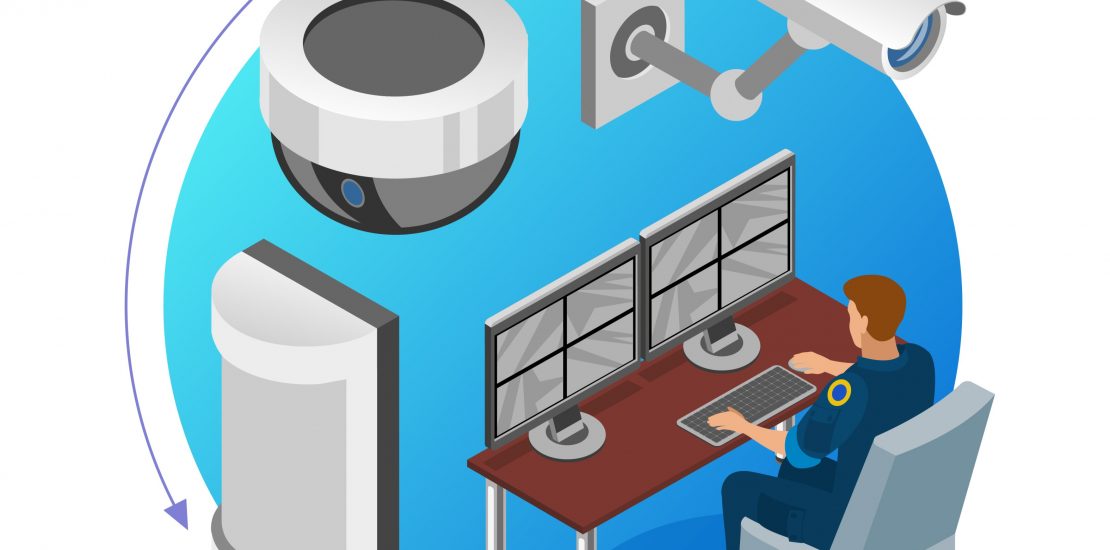- March 27, 2023
- Posted by: premware services
- Category: AMC

Psychology Behind CCTV: How it Impacts Behavior and Attitudes
Closed-circuit television (CCTV) cameras are increasingly prevalent in our daily lives. They can be found in a variety of settings, including public spaces, retail stores, and workplaces. While CCTV is often used to deter criminal activity and provide surveillance footage in the event of an incident, it also has significant psychological effects. In this blog, we’ll explore the psychology behind CCTV and how it impacts behavior and attitudes.
The Psychological Effects of CCTV on Those Being Monitored
Feeling of being constantly watched
Being monitored by CCTV can have significant psychological effects on individuals, whether they are aware of the cameras or not. One of the most significant effects is a feeling of being constantly watched, which can lead to increased anxiety and stress. This feeling of being watched can be particularly intense if an individual is already feeling vulnerable, such as when walking alone at night or in a high-crime area.
Observer effect
Another psychological effect of CCTV on those being monitored is the “observer effect.” This effect occurs when individuals modify their behavior when they are aware that they are being watched. For example, a person may be more likely to pick up litter or follow traffic rules if they know that CCTV cameras are present. However, this effect can also lead to a sense of self-consciousness and decreased privacy, as individuals feel that their every move is being monitored and potentially judged.
The Psychological Effects of CCTV on Those Doing the Monitoring
Surveillance paradox
The psychological effects of CCTV aren’t limited to those being monitored – those doing the monitoring can also be impacted. One of the most significant effects is the “surveillance paradox,” which refers to the fact that monitoring can both increase and decrease a sense of security. On one hand, CCTV can provide a sense of security by deterring criminal activity and providing footage that can be used to catch perpetrators. On the other hand, the act of monitoring can create a false sense of security, leading to complacency and a decreased ability to detect potential threats.
Desensitization
Another effect of CCTV on those doing the monitoring is the potential for desensitization. This occurs when individuals become so accustomed to monitoring that they no longer register the significance of what they are seeing. For example, security personnel who are constantly watching footage of criminal activity. It may become desensitized to the violence and criminal behavior they are witnessing. This can lead to a lack of empathy and a decreased ability to respond appropriately in high-stress situations.
The Impact of CCTV on Attitudes Toward Privacy and Surveillance
The prevalence of CCTV in our daily lives has significant implications for our attitudes toward privacy and surveillance. On one hand, it can be seen as a necessary tool for ensuring public safety and deterring criminal activity. On the other hand, it can be seen as an invasion of privacy and a violation of civil liberties.
One of the most significant concerns about CCTV is the potential for abuse. If footage falls into the wrong hands, it can be used to track individuals, monitor their behavior, and even blackmail them. This can lead to a chilling effect on free speech and a decreased willingness to engage in political activism or other forms of dissent.
Another concern about CCTV is the potential for discrimination. If certain groups are targeted by CCTV monitoring, it can lead to feelings of suspicion and mistrust. This can exacerbate existing inequalities and create a sense of division and tension within communities.
Conclusion
The psychology behind CCTV is complex and multifaceted. While CCTV can be an effective tool for deterring criminal activity and providing surveillance footage in the event of an incident, it also has significant psychological effects on both those being monitored and those doing the monitoring. It can lead to feelings of anxiety and stress, a sense of being constantly watched, and a decreased ability to detect potential threats. It can also create a false sense of security, lead to desensitization.
Premware Services is a leading provider of CCTV security systems in Surat, India. They specialize in providing advanced security solutions to businesses, organizations, and homeowners to help protect their properties and assets. With years of experience in the industry, Premware Services has built a reputation for delivering top-quality systems, installation, and maintenance services. Their team of expert technicians are trained to install and configure CCTV systems to maximize their effectiveness. Whether you’re looking to secure your home, office, or commercial property, Premware Services has the expertise and experience to provide you with the best CCTV security solution in Surat. Call our experts today.
